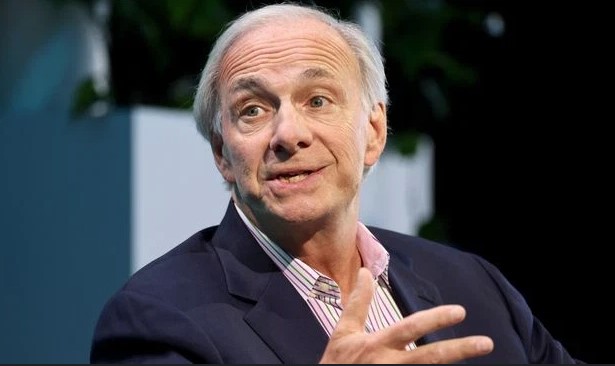Veteran investor Ray Dalio has raised alarm about the current direction of the United States under Donald Trump’s leadership, warning that the country is showing signs of autocracy. Dalio, who built Bridgewater Associates into one of the world’s most powerful hedge funds, compared today’s political and economic climate in the US to what was seen globally during the 1930s and 1940s.
Rising Autocracy Concerns Over Political and Economic Shifts
According to Dalio, three main issues are driving instability: widening gaps in wealth, deepening gaps in social values, and a collapse in trust between groups in society. These divisions, he explained, are pushing the US towards more extreme political approaches and stronger government control, a trend he described as moving toward autocracy.
He pointed to recent examples of state intervention in the private sector, such as Trump’s decision for the government to take a 10 percent stake in chipmaker Intel. For Dalio, such moves reflect a kind of “strong autocratic leadership” that emerges when leaders try to take control of financial and economic systems during crises.
Strategic disaster – Trump betrayed America’s India ties for family business in Pakistan
The investor also noted that many people in the financial world are hesitant to speak openly about these developments. Dalio suggested that fear of retaliation prevents them from publicly criticizing the president or his policies, highlighting how autocracy can silence dissent.
Pressure on the Federal Reserve and the Dollar
Dalio also highlighted growing risks around the independence of the Federal Reserve, the US central bank. His comments came just days after Trump attempted to remove one of the Fed’s governors and pushed to nominate a close ally to its board. These moves, Dalio said, signaled political pressure on the institution at a time when Trump is demanding faster and deeper cuts to borrowing costs, a sign of creeping autocracy in economic governance.
A weakened central bank, according to Dalio, could lose the ability to defend the value of money. This would make US debt less attractive to international investors. Dalio warned that some investors have already begun shifting from US Treasury bonds to gold, a sign of declining confidence in America’s fiscal stability.
Gavin Newsom weaponizes crypto with “Trump Corruption Coin” in redistricting war against Trump
He explained that Washington is currently spending about $7 trillion each year while bringing in only $5 trillion in revenue. This imbalance forces the government to borrow more money, adding to already massive levels of debt. As Dalio described it, the US economy is like a body whose arteries are clogged with plaque, with debt payments squeezing out other spending.
The result, he said, is that the Federal Reserve will face a very difficult choice. Either allow interest rates to rise, risking a debt crisis, or print money to buy debt that private investors refuse to hold. Both paths, Dalio stressed, would harm the strength of the US dollar.
Big Cycle and the Risk of Rising Autocracy
Beyond immediate financial risks, Dalio also spoke about broader historical patterns he has studied in what he calls “the big cycle.” He explained that in times of rising inequality, increasing social tensions, and external conflicts, governments tend to take tighter control of their economies—a pattern that leads to autocracy.
Dalio linked this idea to Trump’s recent policies, including tariffs on technology exports and intervention in major US companies. While he avoided labeling Trump’s model socialist or authoritarian, Dalio described the mechanics clearly: governments start to dominate the actions of both central banks and businesses.
He further explained that when wealth and value gaps become too large, societies often see a surge of populism on both the right and the left. The divisions between these groups become so strong that normal democratic processes can no longer resolve them. As a result, people begin to demand stronger leadership that promises to restore order, even if that leadership reduces democratic freedoms—a hallmark of autocracy.
Trump moves to curb foreign journalists with sharp visa cuts citing security concerns
For Dalio, this pattern of events is strikingly similar to what happened in the 1930s and 1940s, when many countries shifted towards more autocratic systems in response to economic and political turmoil.
Dalio’s remarks to the Financial Times stand out because few prominent figures in finance have openly criticized Trump despite growing concerns. As one of the best-known hedge fund managers in the world, his comparison to the troubled decades of the 20th century underlines the seriousness of his warning.
